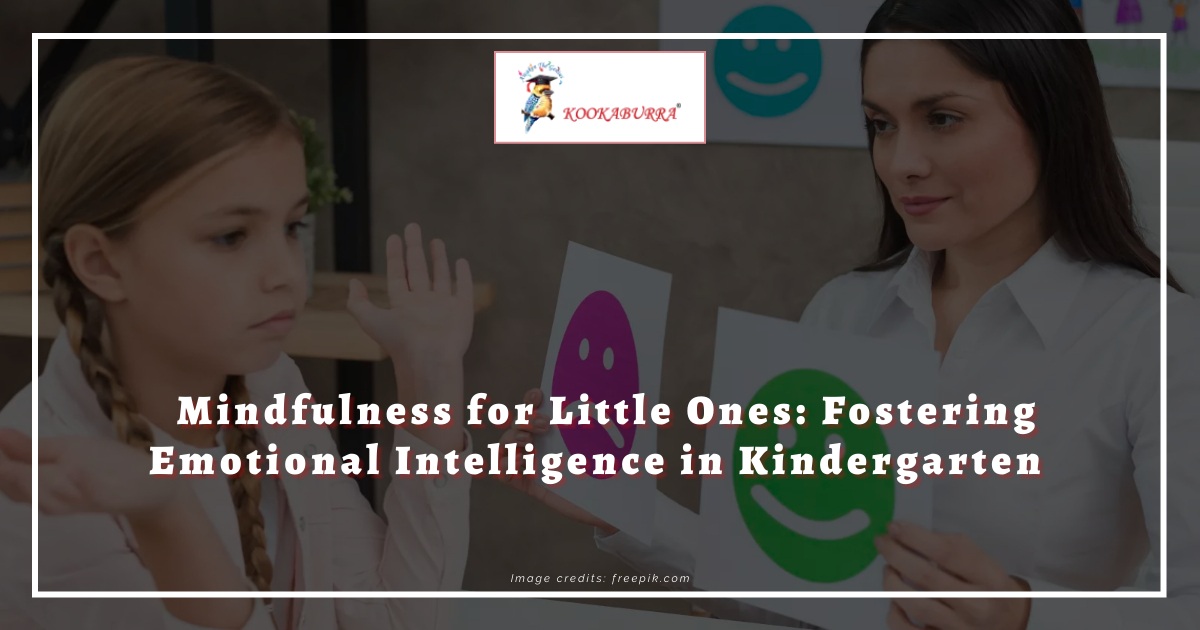
Mindfulness for Little Ones: Fostering Emotional Intelligence in Kindergarten
In the bustling world of the importance of early childhood education, the emphasis is often placed on academic achievements, preparing young minds for the challenges that lie ahead. However, as educators and parents alike are realizing, emotional intelligence is a fundamental building block that sets the stage for a child’s overall well-being and success.
In this write-up, we will explore the importance of fostering emotional intelligence in kindergarten as an essential skill.
What is Emotional Intelligence?
Emotional intelligence encompasses a range of skills that enable individuals to recognize, understand, and manage their own emotions, as well as empathize with the emotions of the other person/peer. When it comes to a kindergarten, introducing emotional intelligence lays the foundation for positive social interactions, effective communication, and resilience in the face of challenges.
Early Learning Junction:
Kindergarten is a crucial time in a child’s development, as it marks the beginning of formal education and lays the groundwork for future learning experiences. It is during these formative years that children begin to explore their emotions and learn to navigate the complex landscape of social interactions. Fostering emotional intelligence at this stage sets the stage for a lifetime of healthy emotional expression and relationships.
Strategies for seamless Emotional Intelligence integration in Preschool:
1. Emotion Recognition Activities:
Integrate activities that focus on recognizing and labelling emotions into the daily routine. Here you can incorporate storytelling, games, or even simple facial expression charts to help children identify various emotions.
2. Introducing Empathy:
Create opportunities for children to understand and share the feelings of others. Story/rhymes full of emotions can be best used here, where children can see, feel and engage in empathy. Begin slowly with the basics, “The 3 golden words: Thank, Sorry and Excuse me”. With similar rhymes, children will step into someone else’s shoes and express how they would feel in a given situation.
3. Encourage Open Emotional Communication:
Create a supportive environment where children feel comfortable expressing their emotions be it jealousy, love or anger. Encourage them to talk about how they feel about a situation. These activities will boost trust and help children develop a positive relationship with their feelings.
The Long-Term Impact:
Investing time and effort into fostering emotional intelligence in kindergarten pays off in the long run. Children who develop strong emotional intelligence skills are better equipped to handle the challenges of adolescence and adulthood. They tend to form healthier relationships, excel academically, and navigate the complexities of the modern world with greater resilience.
While academic achievements are undeniably important, the emotional well-being of a child should not be overlooked. At Kookaburra, we believe a kindergarten serves as a crucial stage in developing emotional intelligence, and by incorporating intentional strategies into the learning environment, educators and parents can help set the stage for a lifetime of emotional health and success.
